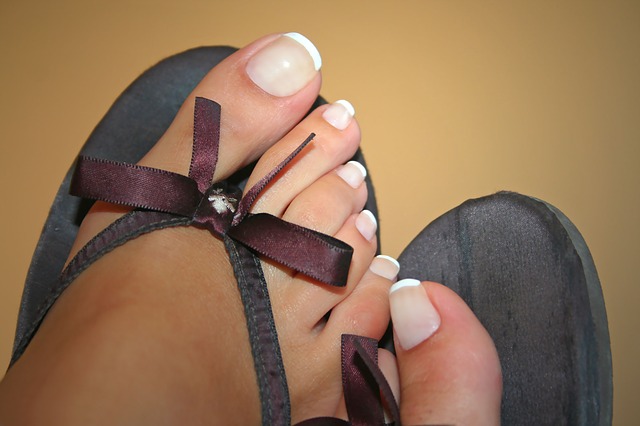Toenails
Treating and caring for your toenails is an important part of maintaining your good health, mobility and independence. Nobody wants unsightly or unhealthy toenails and there are many nail conditions that may need treatment. Your toenails can provide valuable insights about your health. Abnormalities in your nails might be due to an injury, a fungal nail infection or they can sometimes indicate a more serious underlying condition.
For ingrown toenail see the Ingrown toenails page. For nail surgery see the Nail surgery page.
Rachel Miller is a highly experienced chiropodist and podiatrist who sees many patients for routine nail cutting and more complex nail problems. Please see below if you want more detailed explanation of nail conditions.
Contact the Centre for an appointment on 020 8348 5553
Toenails
Taking proper care of your feet and practicing regular nail care is an important part of looking after your overall good health and well being. If you experience foot pain, it can significantly impact your mobility and potentially result in a loss of independence. The routine care of your toenails can be particularly challenging for some individuals with disabilities and the elderly, who may face difficulties in managing their own foot care. This is especially so if you have diabetes.
Symptoms of nail problems
There are many common nail conditions that can have numerous causes and symptoms including:
- thickened nails
- fungal nail
- split nails
- discoloured nails
- loose nails
- ingrown toenails
- brittle or crumbly nails
- ridged nails
- pitted or dents on the nail
Causes of toenail problems
Toenail problems can affect people of all ages, but they tend to be more common in older people.
There are a wide range of reasons and conditions that may cause patients to be at risk from foot and toenail problems including:
- Fungal nail can cause nails to thicken, discolour and become brittle.
- Trauma or overuse, such as from some sports or dancing.
- Poor circulation can cause nails to be thin, brittle or discoloured.
- Psoriasis can cause the nail to be pitted, thick and discolour.
- Eczema can cause the nail to be brittle, split and discolour.
- Certain medications such as chemotherapy, beta blockers and antibiotics can cause nail problems.
- Diabetes can cause thickening, discoloration and brittleness.
- Ill-fitting shoes can cause nail problems, such as ingrowing toe nails.
- Smoking can cause the nail to be brittle, discolour and thicken.
- Dry nails, possibly caused by certain nail polishes and removers.
Treatment of toenail problems
By maintaining good foot hygiene, you can prevent many nail, foot and leg problems. An experienced podiatrist can help diagnose and treat more complex toenail problems which may also indicate more serious underlying conditions. For ingrown toenail see the Ingrown toenails page. For nail surgery see the Nail surgery page.
Treatment for nail problems may include:
- routine nail care that can include trimming or thinning the nail
- self-care advice
- topical or oral anti fungal preparations
- antibiotics or other medications
- nail surgery
- footwear advice
Rachel Miller is a highly experienced chiropodist and podiatrist who understands the importance of proper nail care. She is a caring practitioner who approaches her treatments with gentleness and sensitivity. If you encounter a nail problem, Rachel can diagnose your condition and develop a management plan that can help you maintain good nail care and good overall health.
Call 020 8348 5553 to make an appointment
Rachel Miller’s clinic, Highgate Podiatry, is in Highgate Village, 14 Pond Square, N6 6BA, London. Clinics are held every Sunday, Wednesday and Thursday. Please contact the clinic for an appointment on 020 8348 5553. For the clinic’s address, map and directions see the Contact page and for information about orthotic insoles and biomechanics see the Biomechanics page.
Links to Services:
Links to Conditions Treated Include:
- Achilles tendinopathy
- Ankle fractures
- Ankle injuries
- Arthritis
- Back pain
- Bunions
- Corns/Calluses
- Diabetic care
- Flat feet
- Fungal toenail/athlete’s foot
- Haglund’s deformity
- Hammer toe and mallet toe
- Heel pain
- High arches
- Hypermobility
- Ingrown toenail
- In-toeing, toe walking, curly toes
- Knee injuries
- Metatarsalgia
- Morton’s neuroma
- Osgood-Schlatter disease
- Overuse injuries
- Patella tendinopathy
- Patellofemoral pain syndrome
- Plantar fasciitis
- Sever’s disease
- Sprained ankles
- Stress fractures
- Tarsal tunnel syndrome
- Toenails






